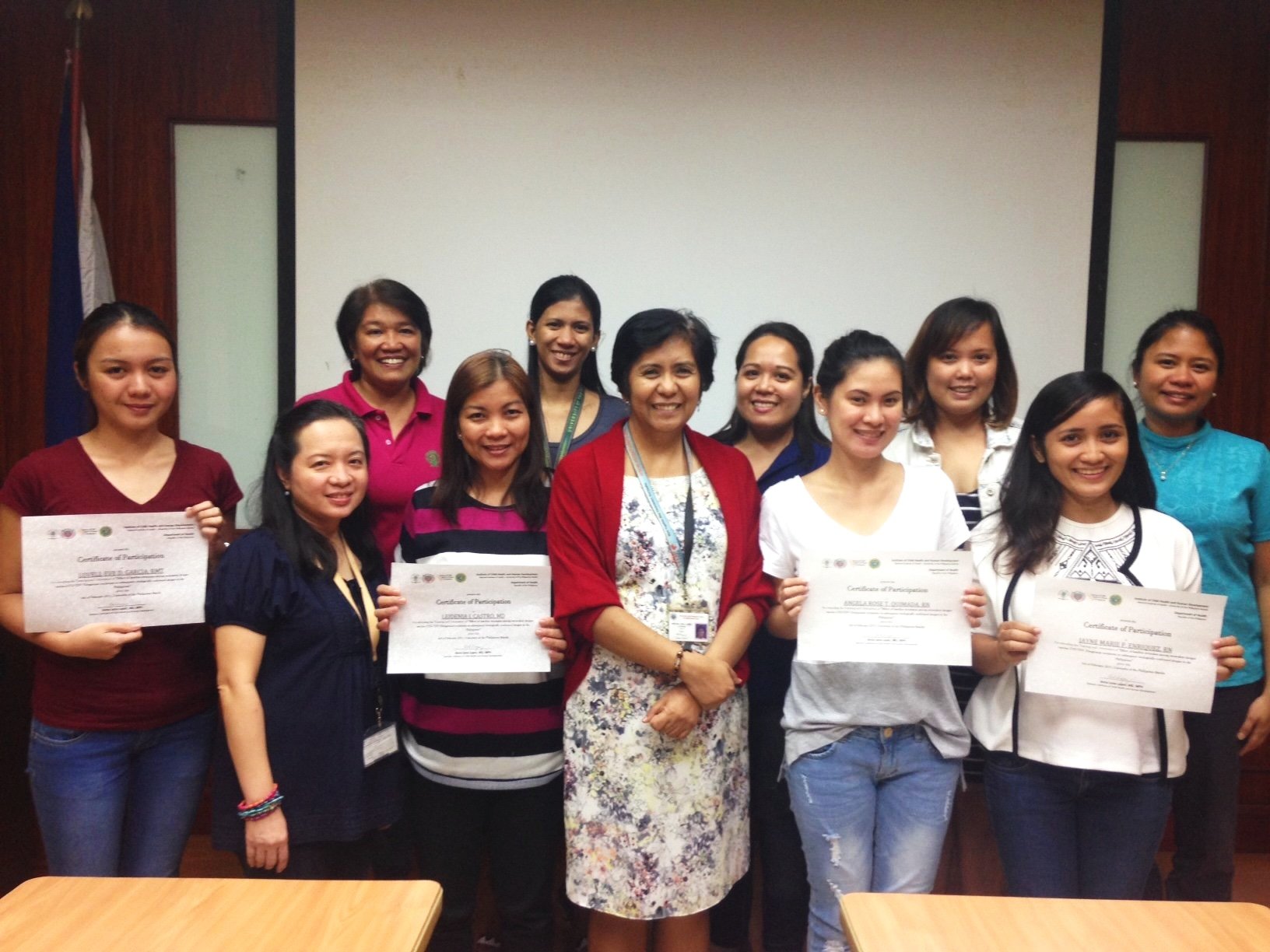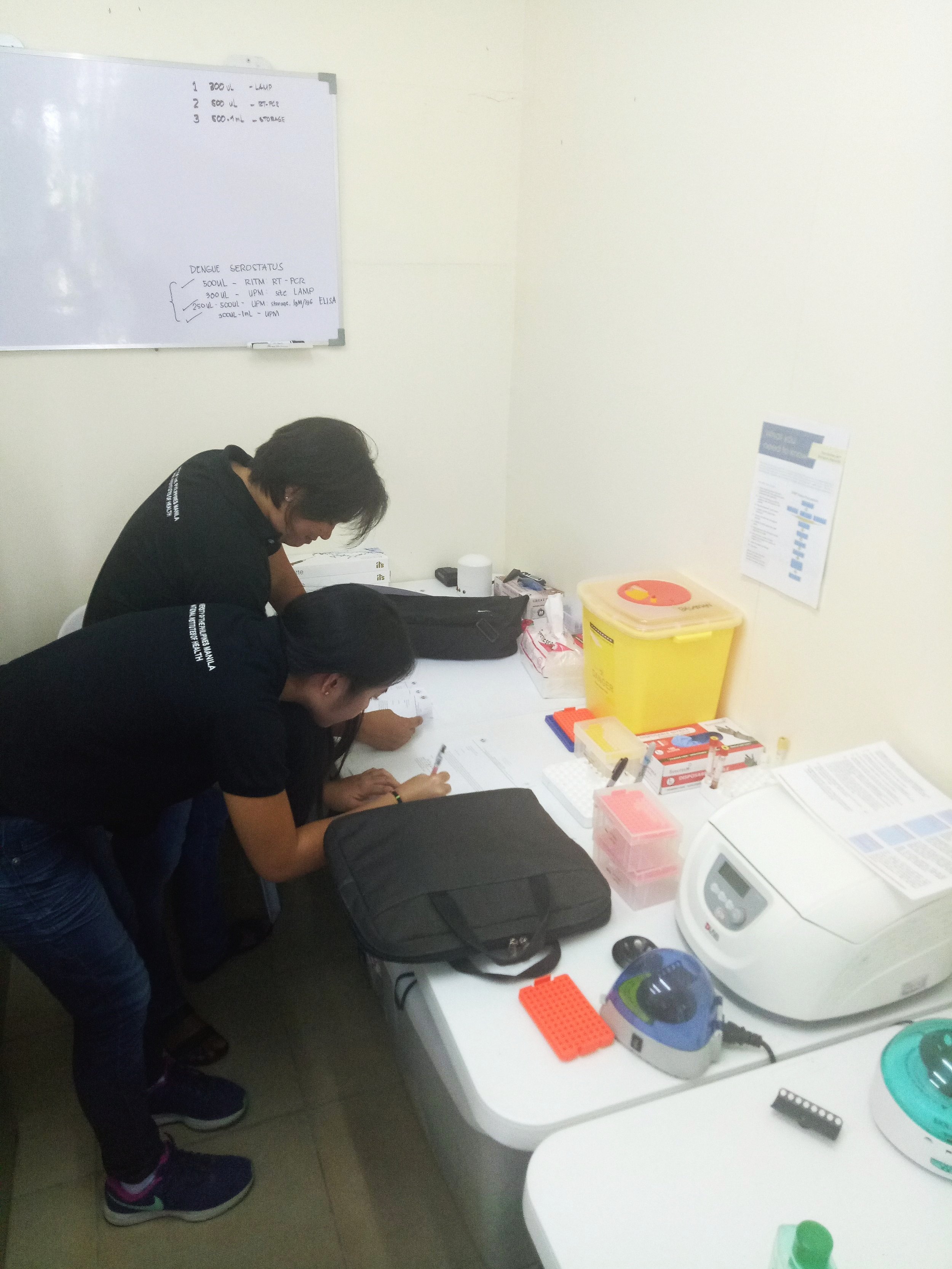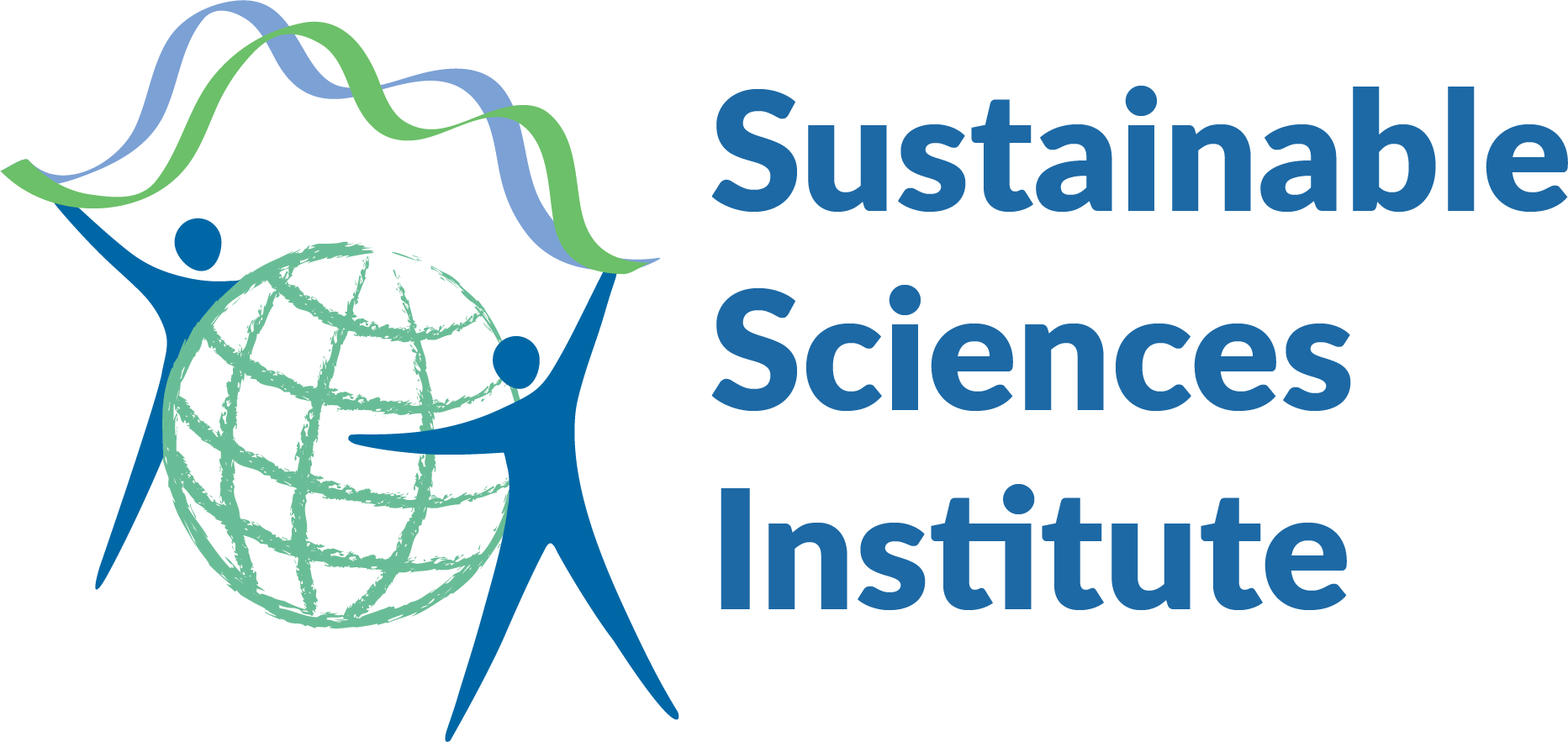
Dengue
Dengue continues to be a threat to global and national health. With the threat of global warming, more countries will be at risk for dengue. Dengue is endemic in the Philippines, with cases reported since the 1950s. In an effort to address this problem, ICHHD has several ongoing studies related to dengue.
As vector control was the only means of prevention, newer modalities are necessary for dengue prevention. The World Health Organization (WHO) identified several research questions that need to be answered when the dengue vaccine is used in the community. Due to the complex nature of dengue disease, epidemiology, and pathogenesis, it is important to closely monitor how the vaccine performs outside of the clinical trial setting. In 2017, the Dengue Serostatus Study was initiated with funding from the Hanako Foundation, the WHO, the Swedish International Development Cooperation Agency through the International Vaccine Institute, the Research Institute for Tropical Medicine, and the Philippines Department of Health. This was a five-year cohort study that aimed to identify how prior dengue exposure and vaccination affects subsequent risk of dengue disease.
The Institute also collaborated with the University of North Carolina, La Jolla Institute of Allergy and Immunology, University of California, Berkeley, Sustainable Sciences Institute, and the US-NIH NIAID. This collaboration aimed to further understand the cellular and humoral immunity of dengue disease and dengue vaccination. In addition, studies on other flaviviruses, like Zika, were also conducted. This study is an externally sponsored collaboration funded by Sanofi Pasteur. The results of these studies may guide health policymakers on how dengue vaccines may be introduced in the public health setting.
Together, these two studies required close coordination with the provincial and local health units in different municipalities. Information collected from these studies provided the first available data from Asia on the performance of the dengue vaccine when given through a government community-based immunization program. Assessing the impact of dengue vaccination on disease burden in countries such as the Philippines will be vital in understanding the potential public health benefit of the vaccine in the future.
In addition, the ICHHD evaluated the performance of various dengue diagnostics in the field. Use of sensitive and specific tests at the point of care assisted in the appropriate management of cases.
-
Dengue virus IgG and neutralizing antibody titers measured with standard and mature viruses are protective. https://doi.org/10.1038/s41467-024-53916-9
Effect of single-dose, live, attenuated dengue vaccine in children with or without previous dengue on risk of subsequent, virologically confirmed dengue in Cebu, the Philippines: a longitudinal, prospective, population-based cohort study. https://doi.org/10.1016/S1473-3099(24)00099-9
Envelope-dimer epitope-like broadly protective antibodies against dengue in children following natural infection and vaccination. https://doi.org/10.1101/2024.04.30.24306574
Effectiveness of a single-dose mass dengue vaccination in Cebu, Philippines: A case-control study. https://doi.org/10.1016/j.vaccine.2021.07.042
Evaluation of a new point-of-care test to determine prior dengue infection for potential use in pre-vaccination screening. https://doi.org/10.1016/j.cmi.2020.08.026
Determining dengue virus serostatus by indirect IgG ELISA compared with focus reduction neutralisation test in children in Cebu, Philippines: a prospective population-based study. https://doi.org/10.1016/S2214-109X(20)30392-2
Novel assay to measure seroprevalence of Zika Virus in the Philippines. https://doi.org/10.3201/eid2712.211150
Performance of dried blood spots compared with serum samples for measuring dengue seroprevalence in a cohort of children in Cebu, Philippines. https://doi.org/10.4269/ajtmh.20-0937
Trends in dengue research in the Philippines: A systematic review. https://doi.org/10.1371/journal.pntd.0007280
The dengue vaccine dilemma: Balancing the individual and population risks and benefits. https://doi.org/10.1371/journal.pmed.1002182
Live-attenuated tetravalent dengue vaccines: The needs and challenges of post-licensure evaluation of vaccine safety and effectiveness. https://doi.org/10.1016/j.vaccine.2017.08.066















